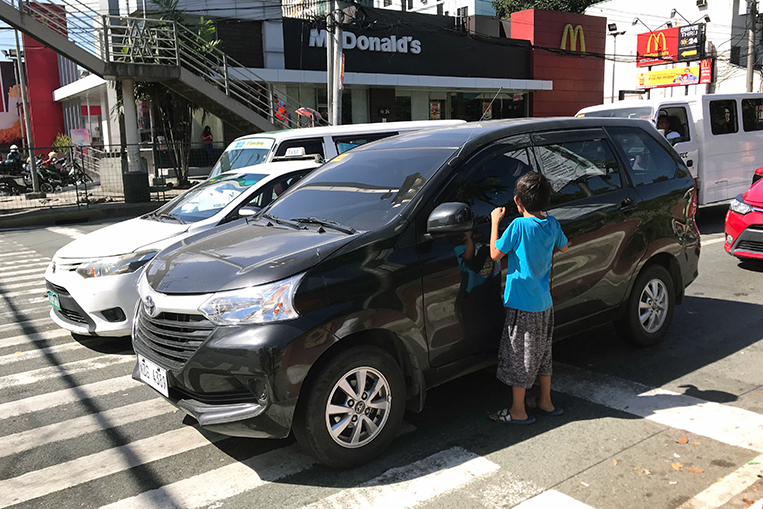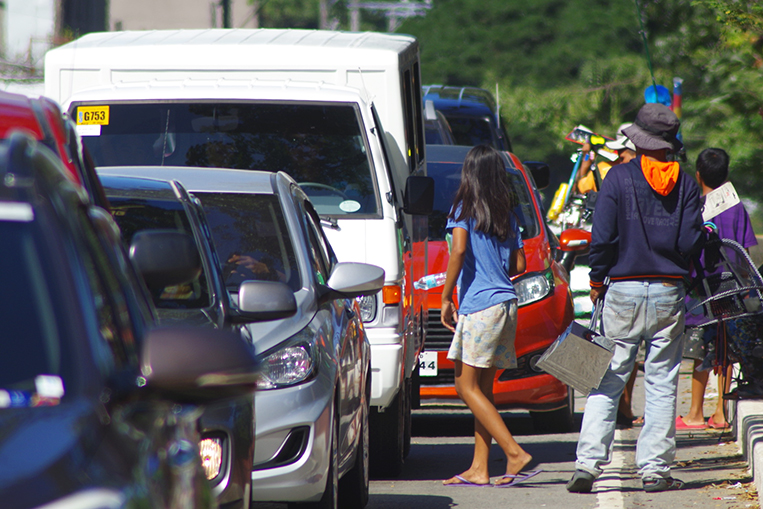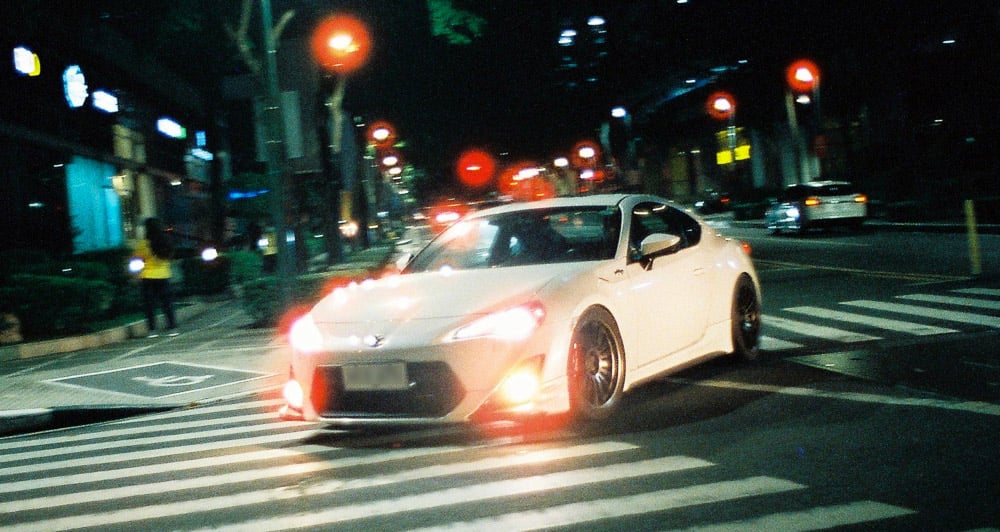
There are a few things you can rely on like clockwork when it comes to Christmas in Metro Manila. Ghastly mall decorations appearing from October onward are among them. Traffic levels going from the usual plain crazy to “I really don’t want to live here anymore” is another. And a sharp upturn in the number of beggars knocking on the windows of cars stopped at traffic lights is the third. Like a poverty-fueled tradition, groups of mendicants descend upon the streets of the megalopolis looking for increased earnings during the festive season. That leaves drivers with a moral dilemma: to give or not to give?
If things go according to the will of various city governments, then not giving is the only option. At the same time as panhandlers prepare for the Christmas rush, press statements are being sent out from city halls urging motorists not to interact with beggars. Councilors in Quezon City, for example, have reported that the number of complaints about people asking for money along EDSA, C5 and other major roads has gone up significantly in the last few weeks, and that drivers should not entertain anyone begging for cash.
During our research for this article, we visited some of the hotspots mentioned by QC officials and did indeed find a group of people asking money from vehicle occupants at a red light on Mindanao Avenue. Adults and children were knocking on windows, trying to get drivers to hand over cash, while street merchants were busy selling knickknacks. According to the law, anyone asking for donations and anyone giving any are actually both committing an offense. Presidential Decree 1563, also known as the Anti-Mendicancy Law, was enacted by former President Ferdinand Marcos back in 1978 and remains in force until today.

On the face of it, it may seem cruel to prohibit the public from extending assistance to the poor in this way, but the underlying motivation makes sense. For starters, having human beings—and especially children—loiter in heavy traffic is extremely unhealthy and dangerous. Even infants are used to play the sympathy card, and it goes without saying that the high level of air pollution present on our roads is particularly toxic for the developing lungs of babies. Then there is the fact that disadvantaged people earning a living in this manner will likely never be able to break the cycle of poverty they’ve grown accustomed to. Instead of children going to school, they are forced to work on the streets, and will in turn likely force their offspring to do the same in the future.
While it may seem heartless to say no to grimy kids at the traffic light, the truth is that by giving them money, you’re only helping to worsen the problem
This, of course, leaves anyone who wants to do the right thing and show some compassion with a bit of a predicament, but there are actually better ways to help those who need support. The QC government, for instance, calls on motorists to send their donations to reputable and legitimate charitable institutions instead, and one organization that we know fits this bill very well is Project Pearls. Working with some of the poorest families in Tondo and elsewhere, this charity is trying hard to break the cycle of poverty by not only providing material support but also offering scholarships and other educational activities. This way, children do not have to go out and beg or work to help support their families, but instead focus on school and working toward a better life.
So, while it may seem heartless to say no to grimy kids at the traffic light, the truth is that by giving them money, you’re only helping to worsen the problem. Of course, the government also needs to do a lot more to fight poverty, but until it does, the job of helping the most vulnerable members of society once again falls on the shoulders of volunteers and those who care about the poorest of the poor (EVERY DAY AND NOT ONLY WHEN THERE’S AN ELECTION COMING UP). If you know of any other charities that deserve publicity and support, please let others know in the comments. Someone once said: “The Philippines is not a poor country, just a poorly managed one.” The task to change that fact is down to all of us, Christmas or not.











Comments